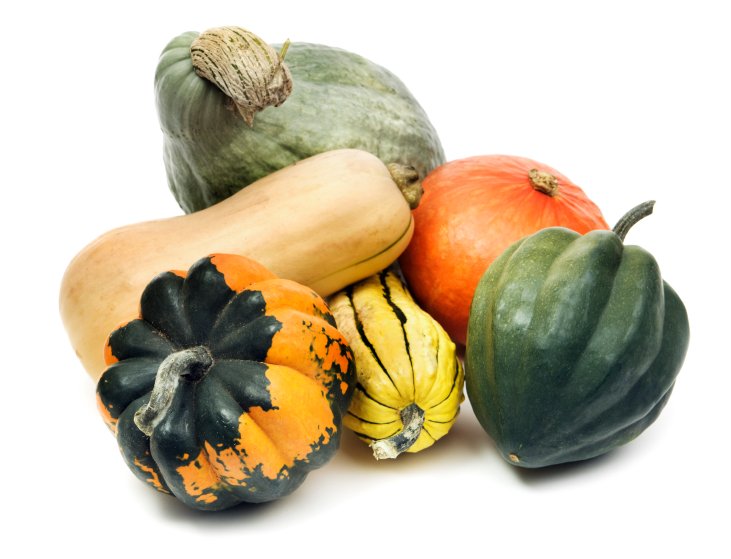Squash, winter

  | Squash, winter in TCM:Explore the properties of Squash, winter according to Chinese
Nutrition and Traditional Chinese Medicine (TCM):
Temperature: warm
Channels: LU, LI, ST, SP
Flavors: sweet
Tonifies: qi
Special Properties:
circulates blood, disperses cold, clears heat, clears damp, resolves phlegm, clears deficent heat
In terms of Traditional Chinese Medicine (TCM) Winter Squash is known for its ability to expel cold, heat, deficient heat, and resolve phlegm. It also helps to regulate blood circulation, resolve dampness.
In general the ancient Chinese medical texts cite that it enters the lung, stomach, spleen, and large intestine. Furthermore Winter Squash is considered to be slightly warm in temperature. The flavor is sweet.
Winter squash are the hard skinned varieties such as acorn, butternut, buttercup, spaghetti, kabocha, and even pumpkin. The seeds of winter squash are believed to be helpful to expel parasites [see also: Pumpkin Seed Nan Gua Zi].
There is some contradictory information in the reference materials regarding the temperature and properties of winter squash. In his book Helping Ourselves, by Daverick Leggett, pumpkin and winter squash are regarded as warm in nature and good to expel cold. But The Tao of Nutrition by Maoshing Ni suggests that winter squash is in fact cooling in nature, and more helpful to relieve steaming bone disorder, reduce fever, and alleviate dysentery. Healing With Whole Foods by Paul Pitchford, which is considered the gold standard by many Oriental medicine universities, says that although winter squash is warm in nature it can help to reduce inflammation, and can be applied topically to skin burns. This issue is further complicated by the fact that 'winter squash' refers to several different types of squash, all of which are likely to have slightly different properties. Its also worth nothing that only The Tao of Nutrition by Maoshing Ni lumps pumpkin into the same category as winter squash, while the other sources mention pumpkin and winter squash separately.
The editor's choice is that winter squash is neutral to slightly warm in temperature, but has properties that can help to resolve both cold and heat related symptoms.
Disclaimer: In accordance with our terms of service, by using this web site you agree that none of the information found on this web site constitutes medical advice. You should always consult your doctor before trying any particular food or herbal remedy to treat disease.
Folk remedies presented on this site are designed to address specifc TCM diagnoses, and are not one-size-fits-all. If you would like to learn more about Traditional Chinese Medicine (TCM) and how it relates to Chinese Nutrition, you can book in a free call with a licensed professional. There is no obligation to purchase.
[CLICK HERE for your free INITIAL CONSULTATION] |

